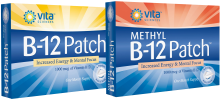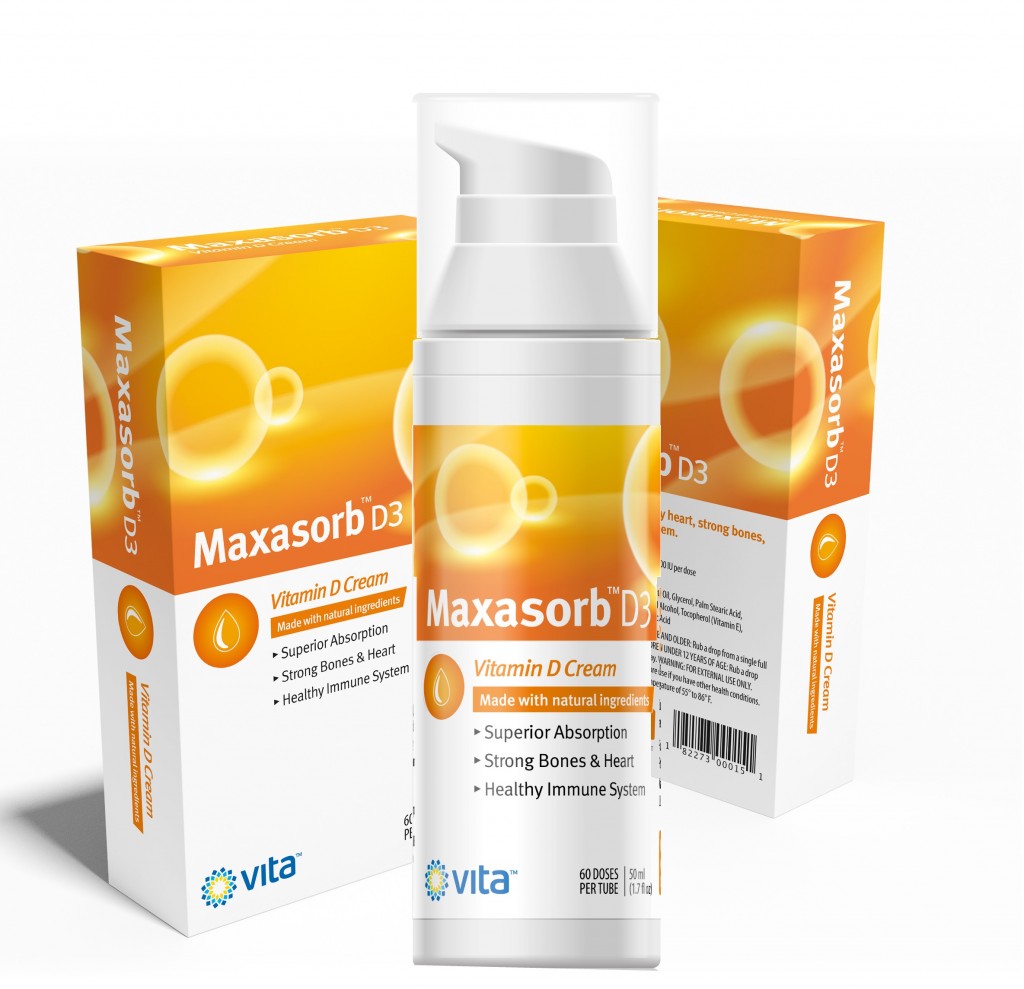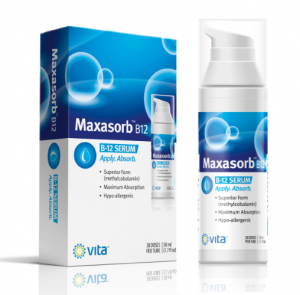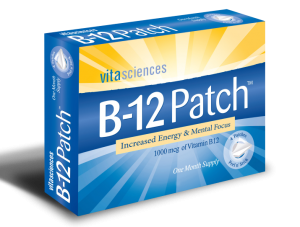 You may not realize it, but as you stand outside you are soaking up vitamin D. This is because the rays of sunshine beaming down on you help stimulate synthesis of this vitamin. Even with this natural source of vitamin D, some of us may still be deficient. Research shows that this may lead to issues with insulin sensitivity. Let’s learn a little more about this body’s need for the sunshine vitamin for optimal metabolic health.
You may not realize it, but as you stand outside you are soaking up vitamin D. This is because the rays of sunshine beaming down on you help stimulate synthesis of this vitamin. Even with this natural source of vitamin D, some of us may still be deficient. Research shows that this may lead to issues with insulin sensitivity. Let’s learn a little more about this body’s need for the sunshine vitamin for optimal metabolic health.
How much vitamin D do I need?
Just 30 minutes of sun exposure in the late morning and early afternoon will fulfill your vitamin D needs. However, you need to make sure you expose either your face, arms, legs, or back without sunscreen. Also, be sure to do this twice a week for optimal absorption.
But if you live in certain climates or have certain risk factors, you may be at risk for vitamin D deficiency. Those groups of people at risk for deficiency include:
- Breastfed infants
- Older adults
- People with limited sun exposure
- Dark-skinned persons
- Those with fat malabsorption issues
Health benefits of the sunshine vitamin
Vitamin D is well-known for its important role in bone health. It helps the body absorb calcium better. This is turn, can promote strong, healthy bones. However, besides bone health, new research shows the importance of this sunshine vitamin in other aspects of health. For example, some experts suggest that vitamin D could help improve metabolic health.
Vitamin D and metabolic health
A recent study looked at a group of nearly 100 adults at least 25 years old with newly diagnosed diabetes. The adults received either placebo or 5000 IU of vitamin D daily. Glucose tolerance tests and insulin sensitivity tests were done at baseline and after six months. Study results show that vitamin D supplements can help improve insulin sensitivity in those with type 2 diabetes or prediabetes. Those without type 2 diabetes did not see any significant improvement.
Because of this research, it shows the importance of having your vitamin D levels checked. If you can catch your deficiency, then you can start on a supplement to help protect your bone and metabolic health.
Other ways to improve metabolic health
Besides taking a vitamin D supplement, there are other things you can do to improve your metabolic health.
Move more: According to recent research, exercise can help you better manage blood glucose levels and improve insulin sensitivity. Therefore, try to move at least 30 minutes a day most days of the week for optimal heart and metabolic health. And don’t forget to add in some resistance training twice a week for about 15 minutes to help maintain lean muscle mass and healthy metabolism.
Eat more soluble fiber: Some research shows that eating more foods high in soluble fiber can help improve insulin sensitivity. Foods high in soluble fiber include oats, barley, nuts, seeds, beans, lentils, and some fruits and vegetables. Not to mention that soluble fiber slow digestion and help your body absorb more nutrients from the food you eat.
Taking dietary supplements when needed: Besides vitamin D, experts also suggest that consuming probiotics or omega-3 fatty acid supplements may help improve insulin sensitivity in those with type 2 diabetes. Also, supplements like Glucarex by Vita Sciences may help improve the health of those with diabetes. Glucarex contains compounds like chromium, alpha lipoic acid, and cinnamon. These natural compounds help promote healthy weight loss, metabolism, and blood glucose levels.
Take home message
There are many ways to help improve metabolic health. But one way you may have never thought of is getting enough vitamin D. Now that you know, it’s important to have these vitamin levels checked at least once a year so you can stay on top of your numbers. And along with moving more and eating a healthier diet, you can ensure optimal health.
-written by Staci Gulbin, MS, MEd, RD
References:
Lemieux, P., et al. (2019) “Vitamin D supplementation increases insulin sensitivity, beta-cell function.” European Journal of Endocrinology, https://doi.org/10.1530/EJE-19-0156
Lillis, C. (March 29, 2019) “Natural ways to improve insulin sensitivity.” Medical News Today.
Medline Plus (last updated July 10, 2019) “Soluble vs. insoluble fiber.”
National Institutes of Health Office of Dietary Supplements (last updated July 9, 2019) “Vitamin D.”
 If you have diabetes, you may or may not know that you are at higher risk for heart disease than those who don’t have diabetes. However, in addition to heart disease, you could also be at risk for bone health issues. This risk was discovered in a recent study that found those with diabetes were at higher risk for osteoporosis than those without diabetes. Therefore, this finding warrants further research on this risk. And in turn, standard diabetes diet and supplement treatments may need to be revised to account for this higher risk.
If you have diabetes, you may or may not know that you are at higher risk for heart disease than those who don’t have diabetes. However, in addition to heart disease, you could also be at risk for bone health issues. This risk was discovered in a recent study that found those with diabetes were at higher risk for osteoporosis than those without diabetes. Therefore, this finding warrants further research on this risk. And in turn, standard diabetes diet and supplement treatments may need to be revised to account for this higher risk.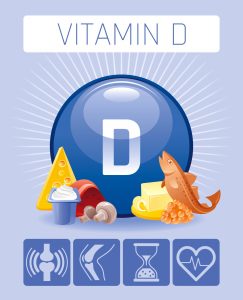 Obesity is a growing problem around the world today. Along with these growing statistics is also the growing amount of diet and exercise programs trying to help people lose weight. Recent research shows though that diet and exercise may not be the whole solution to the obesity issue. Vitamin D, also known as the sunshine vitamin, may be the key to helping people lose weight and lower risk of chronic disease.
Obesity is a growing problem around the world today. Along with these growing statistics is also the growing amount of diet and exercise programs trying to help people lose weight. Recent research shows though that diet and exercise may not be the whole solution to the obesity issue. Vitamin D, also known as the sunshine vitamin, may be the key to helping people lose weight and lower risk of chronic disease. Vitamin D is a fat-soluble vitamin that is best know for its role in keeping bones healthy. This vitamin helps improve calcium absorption in the gut, which helps with bone growth and bone remodeling. Without vitamin D, you may be at risk for weak bones, and in turn increase your risk of fractures.
Vitamin D is a fat-soluble vitamin that is best know for its role in keeping bones healthy. This vitamin helps improve calcium absorption in the gut, which helps with bone growth and bone remodeling. Without vitamin D, you may be at risk for weak bones, and in turn increase your risk of fractures. Vitamin D, known as the sunshine vitamin, is a very important nutrient for overall health. Best known for its work in helping strengthen bones and teeth, vitamin D is starting to get more attention for other benefits it could provide. A recent study reports that cells damaged by heart attack or stroke may be repaired by vitamin D3.
Vitamin D, known as the sunshine vitamin, is a very important nutrient for overall health. Best known for its work in helping strengthen bones and teeth, vitamin D is starting to get more attention for other benefits it could provide. A recent study reports that cells damaged by heart attack or stroke may be repaired by vitamin D3. If you have ever tried to lose weight, then you probably have been told to track your calories. Most calorie trackers focus on keeping track of the calories you consume through food. On the other hand, fitness trackers or workout machines may track how many calories you burn during the day. However, is there more to the story of weight loss, or is calories in and calories out the only key to success? A recent report by health experts reveal that there may be more than simple math in the weight loss equation.
If you have ever tried to lose weight, then you probably have been told to track your calories. Most calorie trackers focus on keeping track of the calories you consume through food. On the other hand, fitness trackers or workout machines may track how many calories you burn during the day. However, is there more to the story of weight loss, or is calories in and calories out the only key to success? A recent report by health experts reveal that there may be more than simple math in the weight loss equation.


